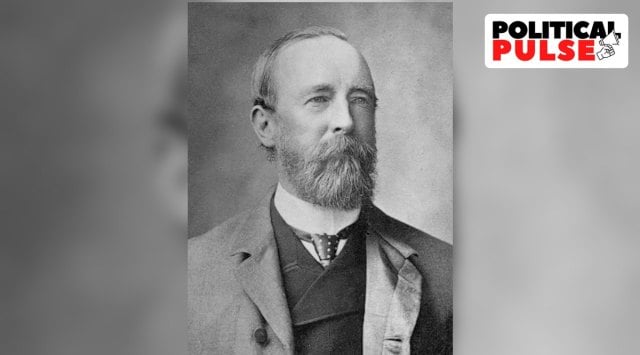As BJP brings his name up amidst ‘INDIA’ row, a look at A O Hume, one of the founders of Indian National Congress
Indian Civil Service officer and notable botanist known as Father of Indian Ornithology, Hume had quit after differences with British administration, believed there was rising discontent among the masses against British rule.
 Allan Octavian Hume, one of the founders of the INC (Photo/ Wikimedia Commons)
Allan Octavian Hume, one of the founders of the INC (Photo/ Wikimedia Commons) As Prime Minister Narendra Modi on Tuesday tore into the 26-party INDIA alliance of Opposition parties, saying even the East India Company “that looted the country” and terrorist outfits such as the Indian Mujahideen, as well as the banned Popular Front of India had ‘India’ in their names, BJP MP Nishikant Dubey joined in saying the Indian National Congress too had foreign links, considering it was founded by an Englishman, A O Hume.
Allan Octavian Hume was an Indian Civil Service (ICS) officer who played a crucial role in the founding of the Congress. Apart from being a political reformer, he was also a notable botanist, and came to be known as the “Father of Indian Ornithology” and the “Pope of Indian Ornithology”, according to the Union government’s Ministry of Culture website.
He was born in June 1829 to Joseph Hume, an East India Company official who spent several years in India and went on to become an MP. Hume tried his hand at the Navy before entering the Bengal Civil Service in 1849.
Since the start of his civil service career, Hume was posted in Etawah in present-day Uttar Pradesh. It was here that he built up a collection of bird specimens. “Unfortunately, they were destroyed during the 1857 rebellion,” says the Ministry of Culture website. “Thereafter, he made several arduous attempts to resume the pursuit of his passion. In the 1860s, he started stuffing birds, labelling them, and making notes. The result of his initial research was the publication of his first book in 1869: My Scrap Book — Or Rough Notes on Indian Zoology and Ornithology.”
Hume developed an interest in theosophy because of which he turned vegetarian and abandoned hunting and collecting birds. “In 1871-72, he relocated to Shimla, and there he set up a Natural Museum at the Rothney Castle. He also appointed a full-time curator and started the journal Stray Feathers, which was over 5,000 pages long. Over the next few decades, he published over 200 ornithological publications, monographs, and curated an ornithological museum and library. He built an elaborate connection of over 160 contributors, which helped him acquire specimens from all over the Indian Empire.”
By June 1879, he started developing differences with the British administration and in 1882, resigned from the service. “However, the most monumental and tragic loss he faced was the theft of most of his manuscript, which he had maintained for his magnum opus Birds of the British Indian Empire,” notes the Ministry of Culture. “After the loss of his manuscript, Hume abandoned ornithology and gifted his entire collection to the Natural History Museum in London. His collection consisting of over 60,000 bird specimens of around 258 bird species and over 20,000 eggs, continues to be the most extensive collection of birds received by the museum.”
The Congress was founded in December 1885 by 72 political workers, among them Hume. In 1894, he left India and moved back to London where he founded the South London Botanical Institute.
In his book India’s Struggle for Independence, historian Bipan Chandra said it was a myth that the Congress was set up by Hume and the others under official directions of Viceroy Lord Dufferin, to act as a “safety valve” for the rising discontent among the masses. According to Chandra, what gave credence to this safety-valve theory were the seven volumes of secret reports that Hume claimed to have read in Shimla in the summer of 1878, “which convinced him of the existence of ‘seething discontent’ and a vast conspiracy among the lower classes to violently overthrow British rule”.
These reports came not from official sources but, as Hume’s biographer William Wedderburn wrote in his book Allan Octavian Hume: Father of the Indian National Congress (1829 to 1912), they came from religious sources who Hume believed in.
Photos



- 01
- 02
- 03
- 04
- 05




























